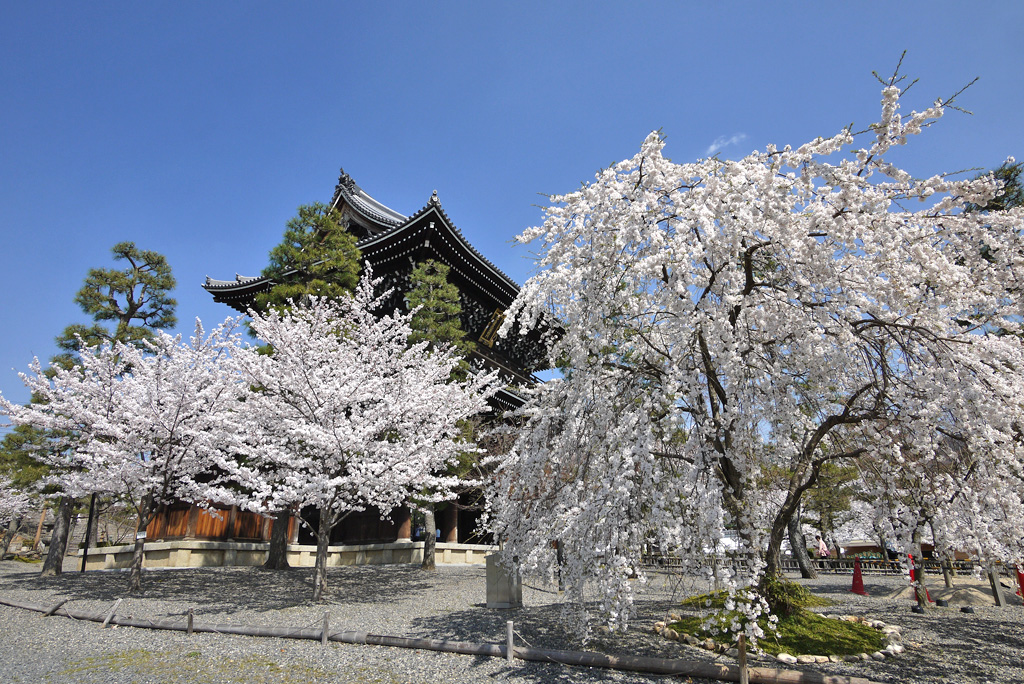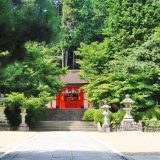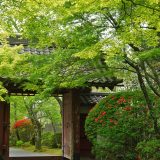

Table of Contents
What is Konkai Komyoji Temple?
Konkai Komyoji Temple was the first temple of the Jodo sect of Buddhism. It is said to have been founded in 1175 when Honen Shonin established a hermitage in Kurodani (Kurodani). Since then, many high priests such as Shinran Shonin and Ippen Shonin visited the temple and spread the teaching of Nembutsu. Located in the middle of the Nishiyama mountain range, the temple is surrounded by steep cliffs to the east and gently spreads out toward the capital of Kyoto to the west.
Basic Information
| Name | Konkai Komyoji Temple |
| Benefit | Pure land and rebirth in the Pure Land |
| Hours of operation | 9:00-16:00 |
| Admission fee | Free of charge |
| Parking lot | No parking |
| Location: 121 Kurodani-machi, Sakyo-ku, Kyoto, 606-8331 Japan | 121 Kurotani-cho, Sakyo-ku, Kyoto, 606-8331, Japan |
| TEL: 075-771-2204 | 075-771-2204 |
| Official website | https://www.kurodani.jp/ |
Features and Highlights
- Follow in the footsteps of Honen Shonin at this sacred site for the Pure Land sect of Buddhism.
- The only place in the Kyoto basin with a spectacular view of the setting sun over the Nishiyama mountain range
- Many valuable Buddhist statues including “Otome no Nyorai” enshrined in the Amida Hall
- Monju Bosatsu statue, three-story pagoda, and many other attractions
Amida Hall: The oldest building in the temple, rebuilt by Toyotomi Hideyori in 1605. The main image of Amida Nyorai is said to be the final work of Buddhist priest Keishin. The chisel used by Keishin Monks for sculpting the Amida Nyorai is placed inside the Nyorai’s belly .
Sanmon Gate: This gate was completed in 1860. On the front of the gate, there is an imperial inscription “First Gate of Jodo Shinshu” written by Emperor Go-Komatsu.
Monju Bosatsu (Manjusri Bosatsu) and three-story pagoda: The statue of Monju Bosatsu, once the principal image of Nakayama Hodan-ji Temple, and a side figure were enshrined in the three-story pagoda, which was built to mourn the loss of Hidetada Tokugawa, a feudal lord. In 2008, they were moved to the Mikageido, where they are now enshrined together with four life-size statues of the attendant. The statue of Monju Bosatsu (Manjusri) is said to be by Unkei, and its graceful appearance is impressive.
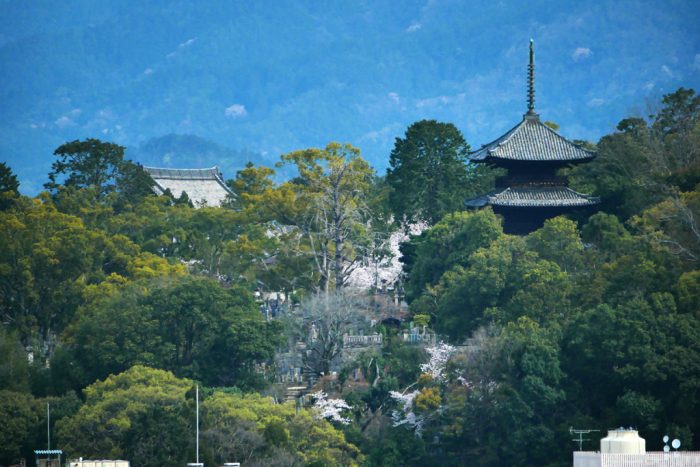
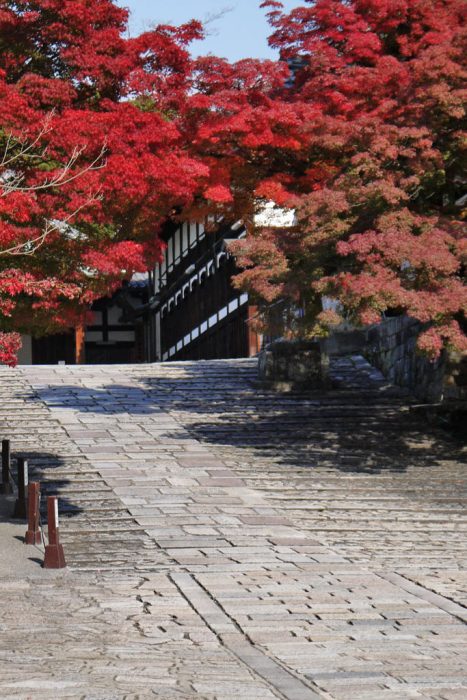
Event Information
Higan-kai (Buddhist ceremony held on the equinoxes)
This is a major Buddhist service held every year on the first day of spring and the first day of autumn. On the middle day of the equinoxes, a nembutsu recitation ceremony is held while worshipping the setting sun over the Nishiyama mountain range. The echoes of the Buddhist prayer echo through the temple grounds, purifying the hearts of the worshippers.
How to get there
- 10 minutes walk from Okazaki-michi bus stop by city bus.
- 15 minutes walk from Higashi-tenno-machi bus stop by city bus.
Conclusion
Konkai Komyoji Temple is a holy place where the teachings of Nembutsu and the beautiful nature of Kyoto are in harmony. It is recommended not only as a sacred pilgrimage site for the Pure Land sect, but also as a sightseeing spot to admire the spectacular view of the Nishiyama mountain range and the precious Buddhist statues. The view of Kurodani at sunset will be an unforgettable memory of your trip.


